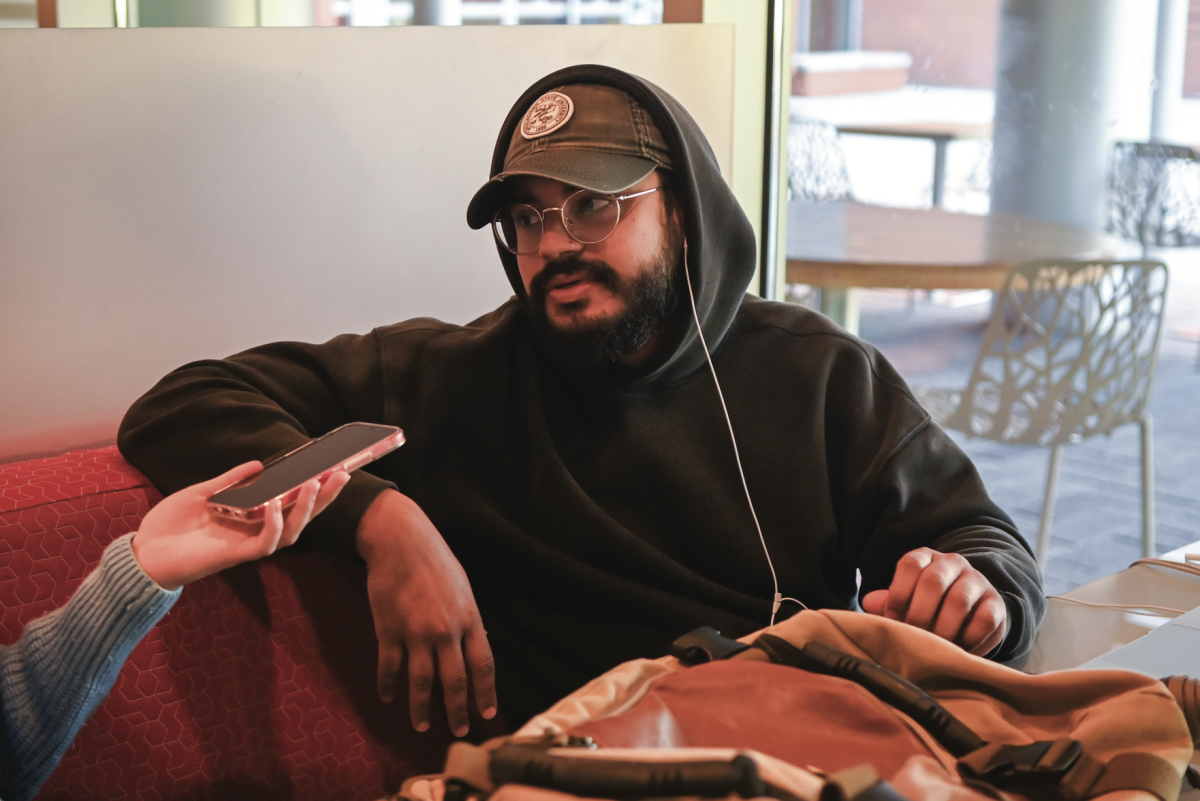Editor’s note: This article contains references to addiction.
Students can agree on one thing: Vaping is detrimental to one’s health. But their experiences with e-cigarettes, along with their motives for using them, differ from fitting in to stress relief.
Vapes are the most commonly used tobacco products among U.S. youth, according to the U.S. Surgeon General. Frederico Araujo, an NC State alum, said he’s smoked cigarettes since high school and started vaping because he hoped it would help him quit smoking. He said he realized soon after that he merely traded one addiction for another.
Recent research published by Statista shows 78% of university students who use tobacco products choose vape products, whereas only around 41% pick traditional cigarettes. Maddie Martin, a fourth-year studying psychology, said she thinks students are more positively disposed toward vaping than traditional cigarettes.
“Vapes are used more commonly because people still think that smoking cigarettes will lead to lung cancer and mouth cancer and so on,” Martin said. “But vaping creates just as many health problems, just different ones.”
Araujo said vaping is more convenient in certain situations, and people generally find it more socially acceptable.
“There’s way more of a stigma around cigarettes, especially because of the smell, and the fact that you can’t just light up a cigarette indoors while you can take your vape anywhere,” Araujo said.
Martin said one of the reasons they quit vaping was they didn’t want to risk long-term damage to their lungs and throat.
“I sing a lot, and I do a lot of sports,” Martin said. “So, in the future, I don’t want to have lung problems and ruin my vocal cords early.”
Aditya Shah, a second-year studying computer science, said vaping addiction isn’t attractive long-term.
“For people who don’t have responsibilities, I can see them doing it,” Shah said. “But I personally don’t see it as something I would do because I have to care for a family after I graduate.”
Existing health issues also can be a factor students refrain from using vape products. Arissa Acosta, a second-year studying fashion and textile management, said being diagnosed with asthma urged her to quit vaping.
“I quit because I’m prone to asthma,” Acosta said. “So, I noticed it was affecting my asthma and made it more problematic.”
While vaping and the use of tobacco products in general are harmful to one’s health, Araujo said he thinks many other things can be bad for people in excess.
“There are studies on food, sodas and alcohol and all these other things that are bad for people,” Araujo said. “I think it’s everyone’s personal decision, what risks they’re comfortable with taking.”
Radin Pouya, a second-year studying mechanical engineering, said it’s important to be mindful of how often you vape.
“We all do things that are not good for our health,” Pouya said. “But as long as you moderate it, you can mitigate the damages, to a certain extent.”
Pouya finds it challenging to maintain a healthy relationship with vaping. Since nicotine is an addictive substance, vaping can quickly become a habit.
Araujo said he uses his vape nearly every day and everywhere except at his workplace.
“I never vape when I’m in the office,” Araujo said. “It’s unprofessional to do that in the workplace.”
Acosta said she’s noticed a difference in the usage of cigarettes and vapes in Malaysia, Tokyo and the United States.
“Here at NC State you don’t see people smoking cigarettes as much, but when I was in Tokyo over the summer, I would see a lot of that,” Acosta said. “I’m also from Malaysia, and it’s the same there too.”
Pouya said it’s important to be mindful of the risk of addiction.
“Addiction is a very difficult thing to deal with,” Pouya said. “Once you get addicted, it’s hard to accept the fact that you are addicted, and especially with school and a lot of stress going on, people usually don’t have the power to really dedicate themselves to quitting.”
NC State’s Counseling Center provides resources for students who are struggling with addictive behavior such as substance use. For more information, refer to its website.
Arissa Acosta, a second-year studying fashion textiles and management, is interviewed in Talley Student Union on Wednesday, Nov. 1, 2023. Students were asked about their perspectives on vaping.









